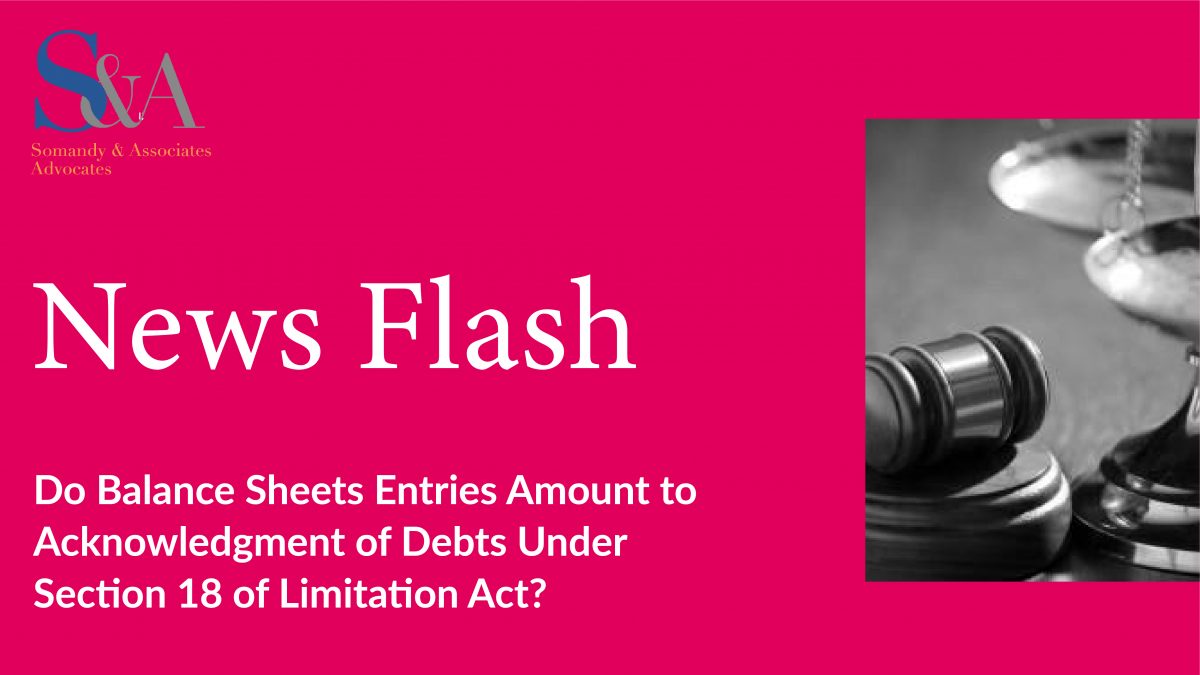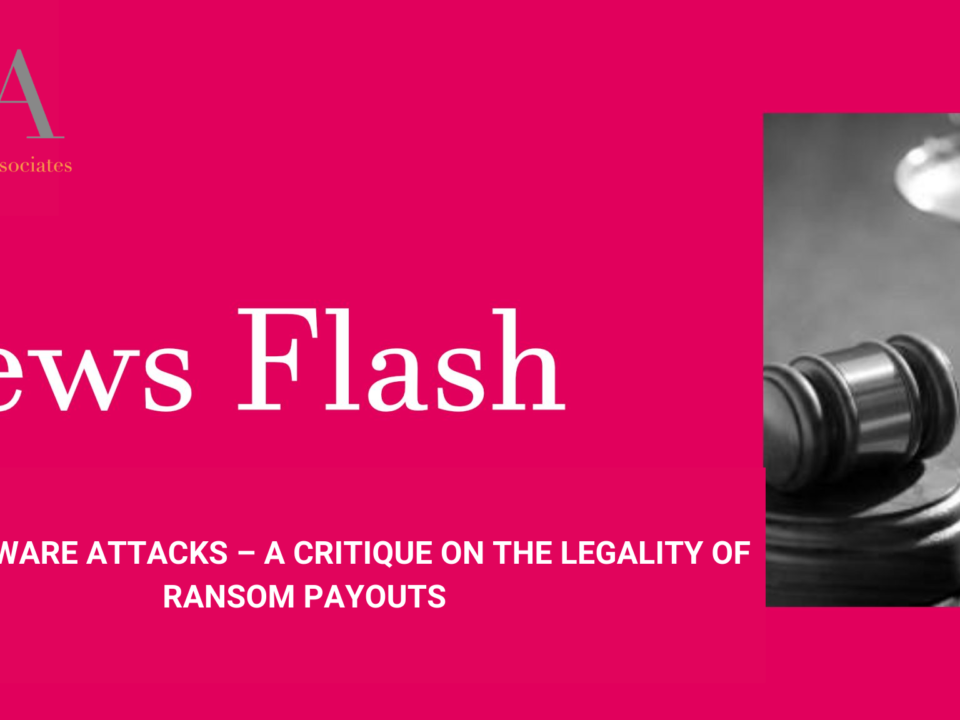
The Supreme Court in the case of Asset Reconstruction Company vs Bishal Jaiswal vide an impugned judgment dated 15th April, 2021 held that entries in balance sheets can amount to acknowledgement of debt for the purpose of extending limitation under Section 18 of the Limitation Act.
The pertinent issues which arose for consideration before the Hon’ble Supreme Court were –
- Whether an entry made in a balance sheet of a corporate debtor would amount to an acknowledgement of liability under Section 18 of the Limitation Act?
- Whether Section 18 of the Limitation Act, is also applicable under Section 238A, given the expression “as far as may be” governing the applicability of the Limitation Act to the IBC?
In the instant case, the appellant had advanced a loan from a consortium of lenders which the corporate debtor failed to repay and consequently the accounts were declared as Non-Performing Asset in 2014. However, an application under Section 7 of the IBC was filed before the National Company Law Tribunal, Calcutta (“NCLT”) in 2018. The adjudicating authority accepted the – application and held that it was not time-barred.
Aggrieved by this decision the corporate debtor filed an appeal with the National Company Law Appellate Tribunal (“NCLAT”) and the 3-member bench of NCLAT doubted the correctness of the decision rendered by a 5-member bench in the case V. Padamakumar Vs. Stressed Assets Stabilization Fund (SASF) & Another which held that entries in books of accounts will not amount to acknowledgment of debt under Section 18 of the Limitation Act. Later, a 5-member bench turned down the reference observing that the same was unwarranted as Padmakumar decision was in accordance with Supreme Court precedents. The 5-judge bench had also made certain adverse remarks against the 3-member bench for doubting the correctness of Padmakumar. In the instant case, aggrieved with the adverse remarks, the 3 members approached the Supreme Court.
Analyzing in length the principles laid down by various adjudicating authorities, the Supreme Court observed that the issue at hand necessitated a bird’s eye view. The same is produced as here under-
Acknowledgement of liability –
Acknowledgement in section 18 of the Limitation Act means an admission of an existing liability in lieu of which the period of Limitation is extended. For the applicability of section 18, the acknowledgement of liability must be in writing, unqualified, and signed by the person or authorized agent admitting such liability. The effect of section 18 is that a fresh period of Limitation is computed from the time when the acknowledgement is signed.
V. Padmakumar (5-Member Bench)
The Bench held that the filing of Balance Sheet or Annual Return is mandatory as per the section 92(4) of the Companies Act, 2013, and failing to do the same would attract penal action under section 92(5) and section 92(6). Hence, the statements are made under statutory requirements and are not voluntary in nature.
When acknowledgement amounts to admission of liability
Reference was made to a judgment of the Calcutta High Court in Bengal Silk Mills Co. v. Ismail Golam Hossain Ariff, wherein it was observed that the balance-sheets were required to be made both by the Indian Companies Act, 1913 and as also by the articles of association of the defendant company. Although there was a compulsion upon the managing agents to prepare the documents but there was no compulsion upon them to make any particular admission. In the process of faithfully discharging their duties, honest admissions of the Company’s liabilities were made.
In view of the legal position spelt out in the judgments noted above, the Court answered the first question in affirmative and held that an entry made in a balance sheet of a corporate debtor would amount to acknowledgement of liability.
Whilst dealing with the second question regarding applicability of Limitation Act to IBC, the Supreme Court relied upon the decision in Sesh Nath Singh v. Baidyabati Sheoraphuli Cooperative Bank Ltd., wherein it was concluded that Section 238A of the IBC makes the provisions of Limitation Act, as far as may be, applicable to proceedings before the NCLT and the NCLAT.
The IBC does not exclude the application of Section 6 or 14 or 18 or any other provision of the Limitation Act to proceedings under the IBC in the NCLT/NCLAT. Therefore, all the provisions of the Limitation Act are applicable to proceedings in the NCLT/NCLAT, to the extent feasible.
In view of such complexities, the inevitable conclusion was that the decision of the full bench in V. Padmakumar was contrary to the aforesaid catena of judgments and the judgment of the 3- member bench stood confirmed. In light of the above, the two impugned judgments of the NCLAT were set aside and the final position that remains is that an entry made in the balance sheet of a corporate debtor would amount to acknowledgement of liability under Section 18 of the Limitation Act.



